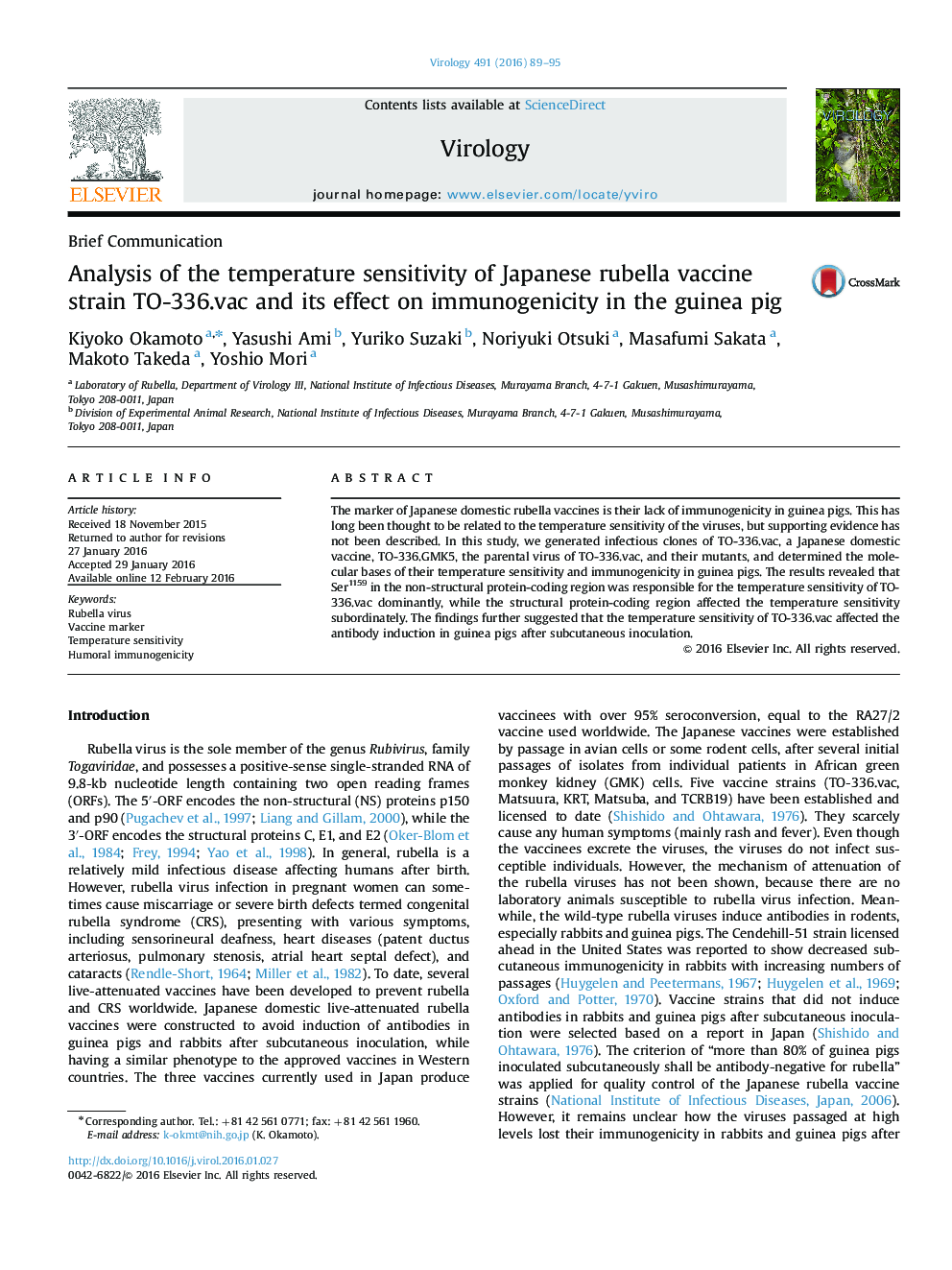| Article ID | Journal | Published Year | Pages | File Type |
|---|---|---|---|---|
| 3424027 | Virology | 2016 | 7 Pages |
•Infectious clones of TO-336.vac, a Japanese domestic vaccine, were generated.•Ser1159 in NS proteins was responsible for temperature sensitivity of TO-336.vac.•Temperature sensitivity affected the immunogenicity of TO-336.vac in guinea pigs.•Structural proteins affected temperature sensitivity of TO-336.vac subordinately.
The marker of Japanese domestic rubella vaccines is their lack of immunogenicity in guinea pigs. This has long been thought to be related to the temperature sensitivity of the viruses, but supporting evidence has not been described. In this study, we generated infectious clones of TO-336.vac, a Japanese domestic vaccine, TO-336.GMK5, the parental virus of TO-336.vac, and their mutants, and determined the molecular bases of their temperature sensitivity and immunogenicity in guinea pigs. The results revealed that Ser1159 in the non-structural protein-coding region was responsible for the temperature sensitivity of TO-336.vac dominantly, while the structural protein-coding region affected the temperature sensitivity subordinately. The findings further suggested that the temperature sensitivity of TO-336.vac affected the antibody induction in guinea pigs after subcutaneous inoculation.
